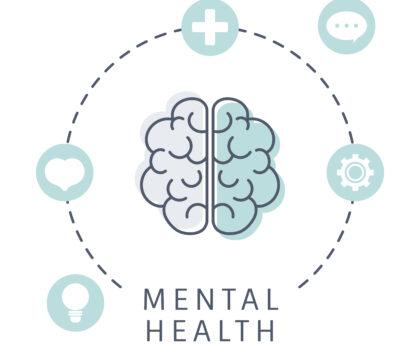Introduction:
In a world filled with consumerism and constant distractions, the art of minimalism offers a refreshing approach to living. Minimalism is a lifestyle philosophy that advocates for simplifying our lives by decluttering physical possessions, reducing mental clutter, and focusing on what truly brings us joy. This comprehensive guide explores the principles of minimalism, the benefits it offers, and practical steps to incorporate minimalism into various aspects of our lives.
Table of Contents:
- Understanding Minimalism: A New Perspective
- The Core Principles of Minimalism
- Decluttering Your Physical Space
- Creating a Minimalist Home
- The Psychological Benefits of Minimalism
- Minimalism and Mental Well-being
- Simplifying Daily Routines and Habits
- Mindful Consumption and Financial Freedom
- Minimalism in Relationships and Social Connections
- Embracing Minimalism in Digital Life
- Minimalism and Environmental Consciousness
- Overcoming Challenges on the Minimalist Journey
- Minimalism and Happiness: Finding Contentment in Less
- Minimalism with Purpose: Intentional Living
- Maintaining a Minimalist Lifestyle
- Understanding Minimalism: A New Perspective: Minimalism is more than just having a tidy home or owning fewer possessions. It’s a mindset shift that challenges the notion that material possessions and external achievements lead to happiness. Minimalism encourages us to question our values, redefine success, and seek fulfillment in experiences and meaningful connections.
- The Core Principles of Minimalism: Minimalism is guided by several core principles, including simplicity, intentionality, and mindfulness. It involves evaluating the importance and purpose of our belongings, focusing on quality over quantity, and being intentional about the things we bring into our lives.
- Decluttering Your Physical Space: A key aspect of minimalism is decluttering our physical surroundings. It involves assessing each item we own and letting go of things that no longer serve a purpose or bring us joy. Decluttering not only creates a visually clean space but also fosters a sense of calm and clarity.
- Creating a Minimalist Home: Designing a minimalist home involves intentional choices in terms of furniture, decor, and organization. It emphasizes clean lines, open spaces, and a curated selection of meaningful items. A minimalist home provides a sanctuary that promotes relaxation, creativity, and a sense of order.
- The Psychological Benefits of Minimalism: Minimalism has profound psychological benefits. By reducing physical clutter, we also reduce mental clutter, allowing for greater focus, productivity, and mental well-being. Minimalism promotes a sense of control, reduces decision fatigue, and cultivates a more mindful and present mindset.
- Minimalism and Mental Well-being: Embracing minimalism positively impacts our mental well-being. It encourages us to prioritize self-care, set boundaries, and live more intentionally. Minimalism reduces the pressures of comparison and consumerism, fostering a greater sense of contentment and fulfillment.
- Simplifying Daily Routines and Habits: Minimalism extends beyond physical possessions. It encourages simplifying daily routines and habits by eliminating unnecessary tasks and commitments. By focusing on the essential and meaningful aspects of our lives, we can create more time and energy for what truly matters.
- Mindful Consumption and Financial Freedom: Minimalism promotes mindful consumption, encouraging us to make intentional choices about what we buy and consume. By avoiding unnecessary purchases and focusing on quality rather than quantity, we can save money, reduce debt, and achieve financial freedom.
- Minimalism in Relationships and Social Connections: Minimalism emphasizes the importance of nurturing meaningful relationships. It encourages us to invest our time and energy in authentic connections with loved ones, fostering deeper bonds and reducing superficial social interactions.
- Embracing Minimalism in Digital Life: In the digital age, minimalism extends to our digital lives as well. It involves decluttering digital devices, organizing digital files, and establishing healthy boundaries with technology. By minimizing digital distractions, we can regain focus, reduce stress, and enhance productivity.
- Minimalism and Environmental Consciousness: Minimalism aligns with environmental consciousness by promoting sustainability and reducing waste. By consuming less, choosing eco-friendly options, and embracing conscious consumption, we can minimize our ecological footprint and contribute to a healthier planet.
- Overcoming Challenges on the Minimalist Journey: Transitioning to a minimalist lifestyle may present challenges. Overcoming sentimental attachments, societal pressures, and habits of overconsumption requires perseverance and self-reflection. Strategies like gradual decluttering, seeking support, and focusing on the benefits can help navigate these challenges.
- Minimalism and Happiness: Finding Contentment in Less: Minimalism encourages us to find happiness and contentment in experiences, relationships, and personal growth rather than material possessions. By simplifying our lives, we gain a deeper appreciation for the present moment, foster gratitude, and cultivate a more fulfilling and joyful existence.
- Minimalism with Purpose: Intentional Living: Minimalism is about living with purpose and intention. It involves clarifying our values, setting meaningful goals, and aligning our actions with our true priorities. By eliminating distractions and focusing on what truly matters, we can live a more purpose-driven life.
- Maintaining a Minimalist Lifestyle: Maintaining a minimalist lifestyle requires ongoing commitment and reflection. Regular decluttering, mindful consumption, and self-awareness are essential. By continuously evaluating our choices and embracing the principles of minimalism, we can enjoy the long-term benefits it brings.
Conclusion: The art of minimalism offers a transformative way of living, allowing us to simplify our lives and find true happiness in less. By decluttering our physical space, reducing mental clutter, and embracing intentional living, we can cultivate a sense of peace, contentment, and fulfillment. Minimalism encourages us to prioritize what truly matters, foster meaningful connections, and lead a more purpose-driven existence.





